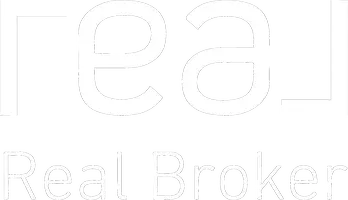Buyer's Market vs Seller's Market: Which one is Better?

You may have heard Realtors say it or mentioned in the news, but what exactly is a "buyer's market" and "seller's market" and what does that mean for you? When navigating the real estate landscape, understanding the dynamics of a buyer's market versus a seller's market is crucial for both buyers and sellers. Each market type has its own set of advantages and disadvantages, particularly in hot markets like Arizona, where the real estate scene can shift rapidly. In this blog post, we’ll explore the pros and cons of each market to help you determine what might be better for you as a buyer or seller.
Understanding Market Dynamics
A seller's market occurs when demand for homes exceeds supply. This typically leads to higher home prices and more competition among buyers. Conversely, a buyer's market is characterized by an oversupply of homes, resulting in lower prices and more negotiating power for buyers. One of the biggest differences is whether the values of home are appreciating or depreciating. There are also ranges from extreme to slightly in each of these markets. Both markets present unique opportunities and challenges that can significantly impact your real estate experience.
Seller's Market
In a seller's market, homeowners are often in the driver’s seat. A seller's market is also an appreciating market. Historically, the majaority of the last 20 years, Arizona has been in a seller's market. Let's find out what that means. Here are some of the key pros and cons:
Pros:
1. Higher Sale Prices: Homes tend to sell for more than their asking price due to bidding wars among buyers.
2. Quick Sales: Properties can spend less time on the market, allowing sellers to move on quickly. Homes that need fixing up or repairs will sell easier in a seller's market.
3. Less Negotiation Power for Buyers: Sellers often have the upper hand when it comes to negotiations, which can lead to fewer concessions.
4. Possiable Multiple Offers: The potential for multiple offers can create a sense of urgency among buyers, further driving up prices.
Cons:
1. Limited Options: Sellers may find it challenging to find their next home due to high demand and low inventory and options.
2. Pressure to Sell Quickly: While fast sales are advantageous, they can also create pressure on sellers who may feel rushed into decisions.
3. Market Saturation Risks: If too many homes come onto the market at once, prices could drop suddenly.
Buyer's Market
In contrast, a buyer’s market provides several benefits that can work in favor of those looking to purchase property:
Pros:
1. Lower Prices: Buyers have more leverage in negotiations and can often secure homes at lower prices.
2. More Choices: With an abundance of available properties, buyers have greater flexibility in selecting a home that meets their needs.
3. Negotiating Power: Buyers can request repairs, closing costs or concessions from sellers without as much pushback.
4. Time to Decide: The slower pace allows buyers more time to consider their options rather than feeling rushed.
Cons:
1. Longer Sales Process: Homes may take longer to sell, which could lead sellers to become frustrated, anxious about their listing or even considering renting it out or taking it off the market for a while.
2. Low Demand Risks: If demand remains low for an extended period, property values could stagnate or decline.
3. Potentially Overlooked Properties: Buyers may miss out on quality listings because they assume they have plenty of time. Home that are staged and "turn key" ready are the homes that sell best in a buyer's market.
Another Type of Market
There is another market, its called a "balanced market". A balanced market is like the name sounds, a balance between a seller's market and a buyer's market. Home prices are stable, homes sell in a shorter amount of time and buyers have options for choosing a home while compitition is not strong. This type of market is also an opportuinty where we see more contingent offers in contracts on homes. This type of market is typically a market where the buyer and seller meet more in the middle with terms of the offer. However, just like a balancing scale the balanced market does not typically last very long and this type of market can be often seen in passing to the upcoming market condition.
What’s Better for Buyers?
For buyers in Arizona looking to purchase a home, a buyer’s market is typically more favorable due to lower prices and increased negotiating power. It allows them to take their time finding the right property without feeling rushed into making offers above asking price. However, something to keep in mind is that home values are generally depreciating in a buyers market.
However, buying in a sellers market can help insure your home and asset are appreciating. It's important to remember even in a seller’s market, savvy buyers can still find opportunities by being prepared with financing and working closely with experienced agents who understand local trends. They should also be ready to act quickly when suitable properties become available. An extreme seller's market may mean bringing more money to the table, offering higher or stratigic on a competitive and appealing home.
What’s Better for Sellers?
For sellers in Arizona, a seller's market is undoubtedly advantageous as it maximizes their potential return on investment while minimizing time spent on the market. Sellers benefit from increased interest in their properties and the possibility of receiving multiple or higher offers.
Yet even in challenging markets, sellers can enhance their chances by properly staging their homes, marketing and pricing them competitively based on recent sales data.
Conclusion
Ultimately, whether you’re navigating a buyer's or seller's market depends largely on your individual circumstances and goals within Arizona's real estate landscape. Each type of market has its pros and cons that cater differently depending on whether you're buying or selling.
As both markets fluctuate due to economic conditions and local factors such as job growth or interest rates, staying informed is key. Whether you're looking to buy your dream home or sell your current property for top dollar, understanding these dynamics will help you make strategic decisions that align with your objectives in today's ever-changing real estate environment.
-Kendra Dursteler
Real Estate Advisor, Realtor®
Categories
Recent Posts










GET MORE INFORMATION

